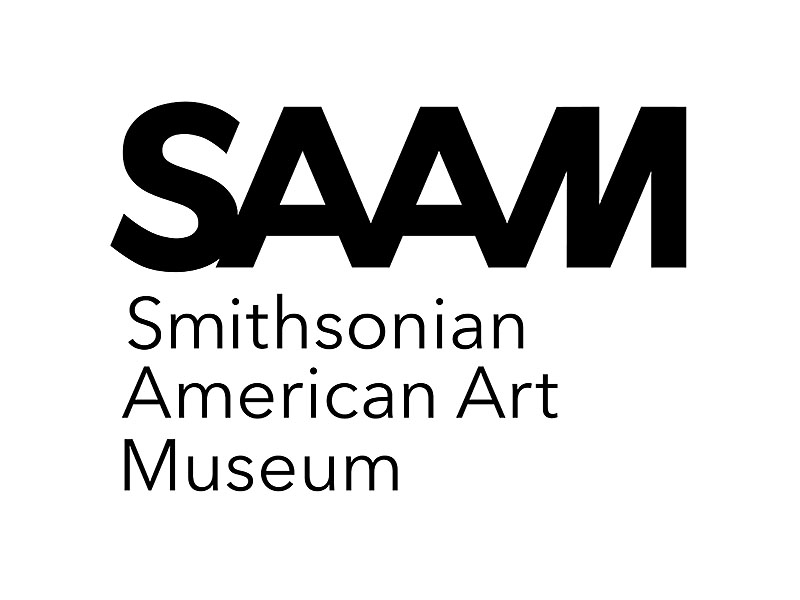Smithsonian American Art Museum Acquires Six Masterpieces by Self-Taught American Artist Bill Traylor
The Smithsonian American Art Museum announced today the acquisition of six masterpieces by the self-taught American artist Bill Traylor. Each represents key themes and characters that recur in Traylor’s brief but prolific artistic career. The group, from the collection of Judy Saslow in Chicago, includes the early “Untitled (Yellow and Blue House with Figures and Dog)” and “Untitled (Dog Fight with Writing)” from about 1939–40 and Traylor’s largest extant painting, “Untitled (Radio)” from about 1942. The group is valued at more than $1 million.
The addition of six of Traylor’s works to the collection doubles the museum’s holdings by this artist. This combination purchase and gift from the Saslow Collection is the museum’s most significant acquisition of folk and self-taught art since 1986, when more than 500 works from the Herbert Waide Hemphill Jr. collection became the cornerstone of the museum’s holdings in this area.
These works will be featured in a major Traylor exhibition opening in Washington, D.C., March 16, 2018. Leslie Umberger, the museum’s curator of folk and self-taught art, began planning the exhibition “Between Worlds: The Art of Bill Traylor” soon after she joined the museum’s staff in 2012. The exhibition will be the first retrospective for an artist born into slavery.
“Bill Traylor is among America’s most important artists and the Smithsonian American Art Museum is the ideal place to foster his artistic and historical legacy,” Umberger said. “Traylor’s works balance narration and abstraction and reflect both personal vision and black culture of his time. These works offer a rare perspective to the larger story of America, and the forthcoming retrospective will bring his work to new and wide-ranging audiences.”
Traylor (born Benton, Ala., 1853–54; died Montgomery, Ala., 1949) was born on a cotton plantation where he worked as a sharecropper after Emancipation. Around 1930, Traylor moved to segregated Montgomery, where he lived the rest of his life, homeless and increasingly disabled. In his last decade, he began to draw. He left behind more than 1,000 drawings and paintings on discarded cardboard boxes and advertising cards. His imagery embodies the crossroads of multiple worlds: black and white, rural and urban, old and new.
Traylor has been represented in the museum’s collection since 1983 when collectors Chuck and Jan Rosenak donated “Untitled (Pig),” an opaque watercolor painting on paperboard. Two additional works were acquired in 1986 and 1991when Herbert Waide Hemphill Jr. donated “Untitled (Man, Woman, and Dog)” and “Untitled (Woman with Umbrella and Man on Crutch).” In 2015, the museum purchased two small Traylor works, a pencil drawing and a painting on paperboard, and that same year, Montgomery collector Micki Beth Stiller donated the painting “Untitled (Chase Scene),” an opaque watercolor on paperboard.
The Smithsonian American Art Museum has championed self-taught art as an embodiment of the democratic spirit since 1970 when it acquired and preserved James Hampton’s iconic “The Throne of the Third Heaven of the Nations’ Millennium General Assembly.” It is one of the only major American museums to advocate for a diverse populist voice within the context of what is traditionally considered great art. Recent exhibitions featuring major acquisitions have included “Untitled: The Art of James Castle” (2014), “Ralph Fasanella: Lest We Forget” (2014) and “Mingering Mike’s Supersonic Greatest Hits” (2015). The museum has had dedicated gallery spaces for folk and self-taught art for more than 45 years. A new installation of these galleries, organized by Umberger, will open to the public Oct. 21.
About the Smithsonian American Art Museum
The Smithsonian American Art Museum celebrates the vision and creativity of Americans with artworks in all media spanning more than three centuries. Its National Historic Landmark building is located at Eighth and F streets N.W., above the Gallery Place/Chinatown Metrorail station. Museum hours are 11:30 a.m. to 7 p.m. daily (closed Dec. 25). Admission is free. Follow the museum on Twitter, YouTube, Tumblr, Instagram, Facebook, Flickr, Pinterest, iTunes U and ArtBabble. Museum information (recorded): (202) 633-7970. Smithsonian information: (202) 633-1000. Website: americanart.si.edu.
# # #
SI-239-2016
Laura Baptiste
202-633-8494

